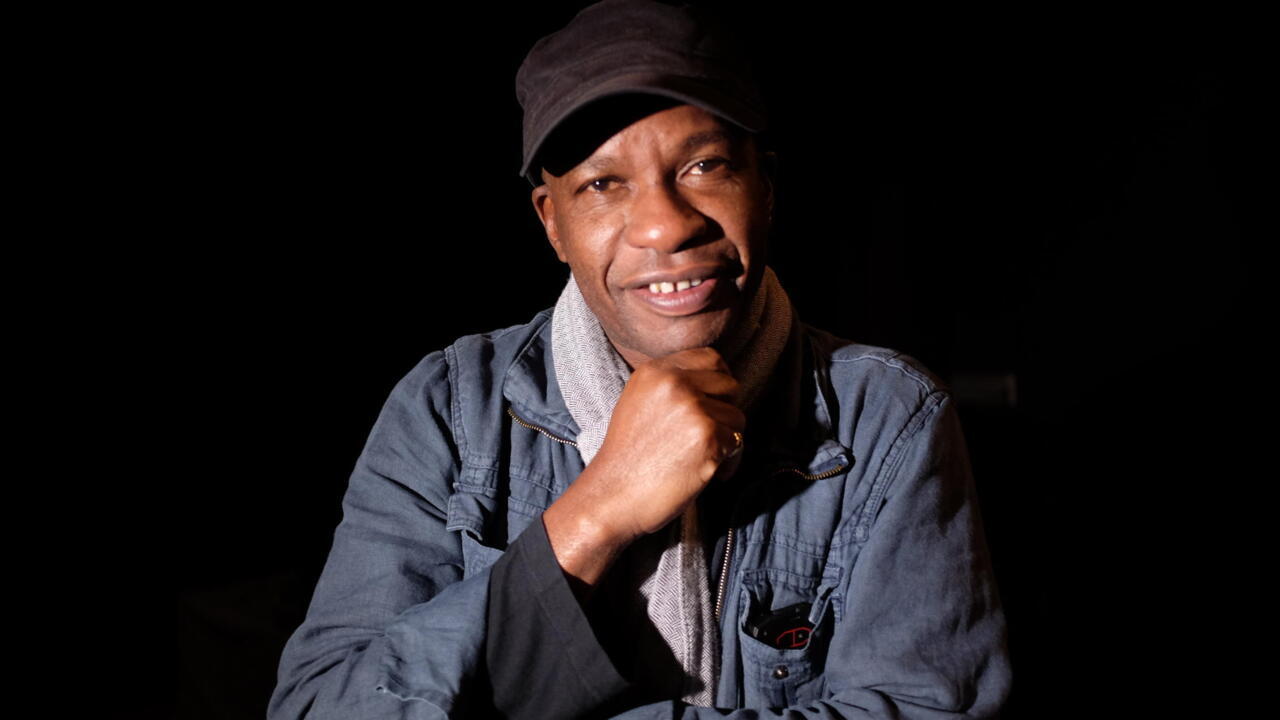Francophonies: Moïse Touré and Rokia Traoré question the notion of hospitality
“The night will be calm”, by Moïse Touré and Rokia Traoré, premiered at the Francophonies Festival, Les Zébrures d'Automne, in Limoges.
© Siegfried Forster / RFI
Text by: Siegfried Forster Follow
6 min
The piece "The night will be calm" offers a sensitive experience around hospitality.
On stage, poetic and experimental scraps question this elementary notion and yet regularly questioned of our humanity.
A project conceived by the director Moïse Touré with and for the singer Rokia Traoré.
Publicity
Read more
Detained in Mali, because of her problems with the justice system, the physical absence of the Malian singer and composer
Rokia Traoré
almost gave additional interest to this spectacle that had become ghostly, confronted with the absence of the physical presence of the main role.
Moïse Touré, who loves to bring together geographic and cultural continents, took up the challenge for this premiere of
La nuit sera calme
at the Francophonies festival, Les Zébrures d'Automne.
The Ivorian director and for a very long time French by adoption decided to project a video made by the Malian star in the streets of Bamako on the big screen in Limoges and to have his songs composed for the show by the Malian singer Dassoum Fané sung. .
Created in a double emergency, the piece fully and successfully assumes its fragility on stage.
RFI:
The night will be calm
begins with a simple observation
: “
Since the nights of time,
homo sapiens
has been a
homo migrans
.
In other words
: humanity turns out to be a species of migrants.
So everything is said from the start of the show
?
Moïse Touré
:
Yes, we could stop the play at this quote, because the essentials have already been said.
But afterwards, we will see how this notion of hospitality can be experienced in different states: emotional, intellectual, physical states… From the first image, we find ourselves between hospitality and questioning hospitality.
A text by the philosopher Jacques Derrida tells us in a definitive way the absolute of hospitality.
Unconditional welcome, hospitality, is at the center of the room. In your show, what does she look like
?
It looks like the humanity that I gathered on the set.
There is both a mother and her child, an almost primitive hospitality, because the first hospitality we receive is in the womb of our mother who carries us for nine months.
So, I wanted to start from this fundamental question of hospitality, which is to receive something and keep it, to wear it, to accompany it.
Afterwards, it is the hospitality of others.
For example, inviting artists, like Rokia Traoré, who should be there and who brought us from Bamako a singer friend and a musician.
The theater stage is also a place of hospitality to welcome words, bodies, sounds, music, voices.
I also wanted to organize the set as a welcoming area.
A welcoming theater that tries to oscillate between poetry, thought, song, and which leaves spectators the possibility of making their own inner journey.
It is not an imposed message, it is an opening message.
The night will be calm
also evokes the capacity to forget by quoting thinkers, artists, philosophers ...
Starting from Jacques Derrida, I asked contemporary authors to write about hospitality.
We hear texts by Swiss-Cameroonian
Simon Njami
, Burkinabè
Aristide Tarnagda
,
Georges-Didi Huberman
… to say how to carry this notion of hospitality today.
This question is very topical, but this story will not last just a few months and end.
It is truly at the heart of humanity today.
It is a piece designed with and for Rokia Traoré who could not come to France for legal reasons. Beyond the specific case of Rokia Traoré, at the time of the coronavirus, in shows, the question of physical presence is increasingly being asked. This presence of absence, what does it change for a director
?
It changes a lot of things.
But we were in constant dialogue.
The image you saw today at the show, it came yesterday, an hour before the show!
The singer who came from Bamako, we didn't know until a week ago that she was coming!
All this makes it fragile, uncertain.
But, in a way, this uncertainty, this fragility, this absence, I tried not to hide or resolve it, but to let the set live with it.
So there are gaps, absences.
For this, at one point, when the phone rings, Derrida talks about ghosts.
It is also a ghostly spectacle, the ghosts are there, by the spirit and many other things.
We don't see them, but they are there.
In a way, the question of the ghost, which is a theatrical question, also runs through
The Night will be calm
.
The piece brings together text, dance, song, music, video projection… What is the role, the place of French, of the French language in this piece on hospitality, on foreigners…
The role is decisive because the authors cited wrote in French.
I also wanted to make French coexist with other languages.
It was important for me that French welcome other expressions, other ways of thinking.
French is a language shared by many peoples.
It is a universal French which also allows the hospitality of other voices.
French cannot be the only voice.
It can accompany, welcome.
It is also this French that I wanted to show.
►
The Zébrures d'Automne program, Francophonies festival, September 23 to October 3 in Limoges, France.
Newsletter
Receive all the international news directly in your mailbox
I subscribe
Follow all the international news by downloading the RFI application
google-play-badge_FR
Theater
France
Mali
Ivory Coast
Francophonie
Culture
Culture Africa
our selection
On the same subject
The 2020 RFI Theater Prize awarded to Guinean Souleymane Bah for "La Cargaison"
Interview
Francophonies: "In Africa, 'over there' means the West"

